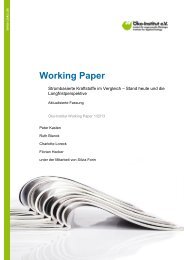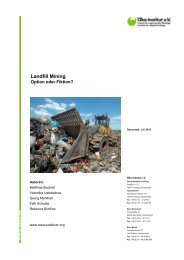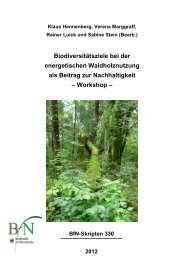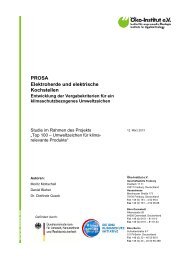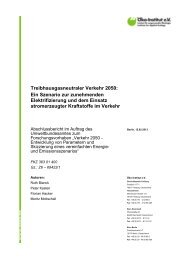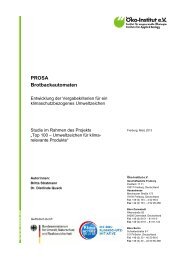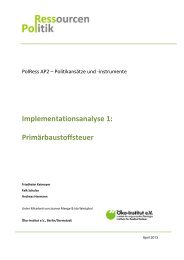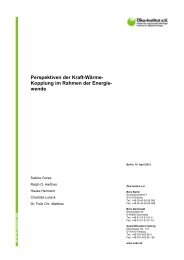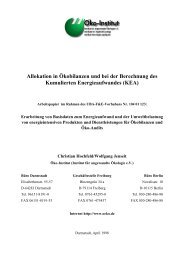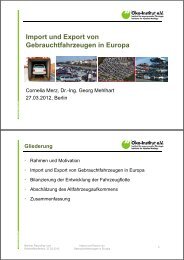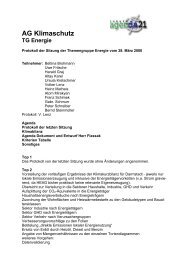BIOENERGY FOR EUROPE: WHICH ONES FIT BEST?
BIOENERGY FOR EUROPE: WHICH ONES FIT BEST?
BIOENERGY FOR EUROPE: WHICH ONES FIT BEST?
You also want an ePaper? Increase the reach of your titles
YUMPU automatically turns print PDFs into web optimized ePapers that Google loves.
7.1 Country specific life cycle comparisons 131<br />
Technical applications I: heat production – Germany<br />
Use of fossil fuels<br />
Greenhouse effect<br />
Acidification<br />
Eutrophication<br />
Summer smog<br />
Nitrous oxide**<br />
Human toxicity**<br />
* How to interpret the diagram<br />
Advantages for<br />
biofuel<br />
Advantages for<br />
fossil fuel<br />
Willow<br />
Miscanthus<br />
Straw<br />
-1000 -500 0 500 1000 1500 2000 2500<br />
German inhabitant equivalents* per 100 TJ<br />
The figure shows the results of complete life cycle comparisons where straw, willow and Miscanthus<br />
respectively are used for heat production instead of light oil. The results are given for an amount of<br />
100 TJ. This is equivalent to the average heat requirement of 25,000 inhabitants of Germany in one<br />
year. In this case for example the amount of greenhouse gas emissions that is being saved by substituting<br />
light oil by Miscanthus is equal to the amount which about 700 German citizens would on average<br />
generate in one year. (This is what is meant by “German inhabitant equivalents”.)<br />
Remarks and conclusions<br />
Comparing the four investigated bioenergy carriers (in turn compared to their fossil counterparts)<br />
against each other, the following result emerges:<br />
• Use of fossil fuels and greenhouse effect: all biofuels show quite similar advantages.<br />
• Acidification: all biofuels show disadvantages, willow the smallest, straw and Miscanthus similar.<br />
• Eutrophication: straw shows a small, the cultivated biofuels much bigger disadvantages.<br />
• Summer smog: willow shows a small advantage, straw and Miscanthus small disadvantages.<br />
The data for ozone depletion and human toxicity tend to have a high uncertainty. Therefore these categories<br />
should not be included in the final assessment. (**See Chapter 4.1.2 and for details on all impact<br />
categories 3.3 and 3.4.)<br />
Overall, Miscanthus has the least favourable results apart from the category eutrophication.<br />
A further assessment in favour of or against one of the biofuels cannot be carried out on a scientific<br />
basis, because for this purpose subjective value judgements regarding the individual environmental<br />
categories are required which differ from person to person.



